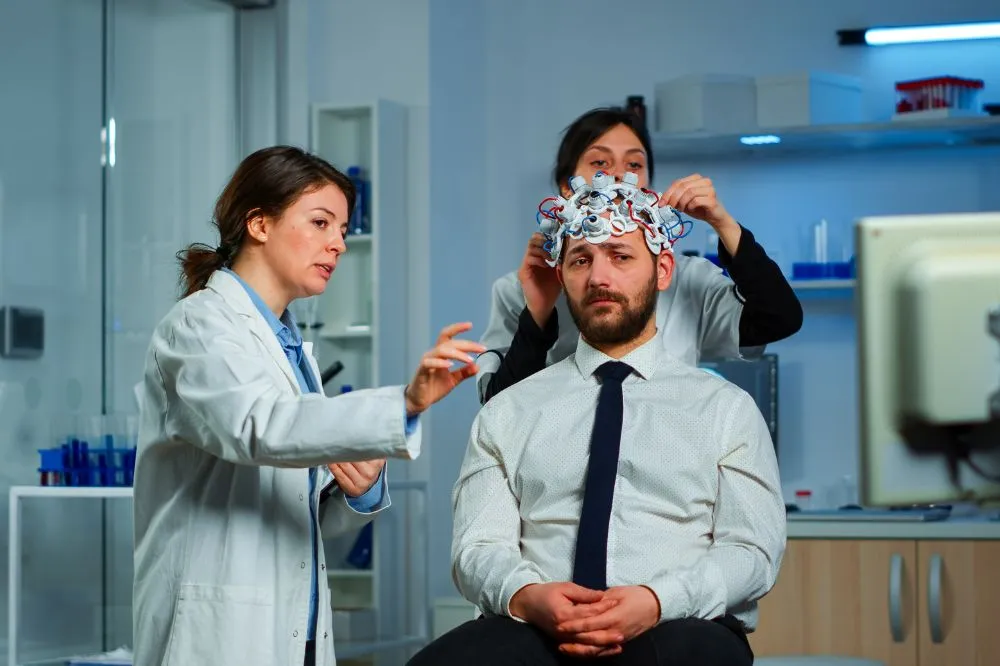In recent years doctors have been told to reduce the use of opioids for pain management as they are considered addictive painkillers. Instead, use other less potent medications. Therefore, it is natural to ask if opioids are really so good for pain management.
To start with, it is vital to understand that opioids are among the oldest painkillers used by humans. Opioids are good, not just for pain. They are also used to suppress cough, manage diarrhea, and manage many other health conditions.
Pain is not a disease but rather a symptom. Nonetheless, many health conditions cannot be cured, and thus pain remains one of the most common causes for visiting doctors. Almost half of all the patients who visit a physician’s office have some pain.
At present, the approach to treating pain is pretty straightforward. Doctors use the so-called pain-treatment ladder. First, they would start with non-steroidal anti-inflammatory drugs (NSAIDs). However, if these medications fail to help patients, they would progress to weaker opioids like tramadol. Finally, they need to prescribe opioids. Therefore, doctors use opioids when other efforts have failed to provide sufficient chronic pain relief.
Studies suggest that about one-fifth of all those living with pain need opioids for sufficient pain relief. However, doctors have now been under pressure to reduce opioid use. They are already tapering opioids in many patients and avoiding prescribing opioids to new patients. However, there are worries that it may be causing more harm than good and are being considered as addictive painkillers.
It is true that 1-3% of patients may become addicted to these drugs. However, this does not mean that the vast majority of patients must suffer due to an addiction risk in a small number of patients. Moreover, most of those addicted to opioids are quite likely to continue abusing various substances. If they do not get prescription drugs, they are quite likely to use street drugs. There is insufficient evidence that those people became addicted to opioids merely due to opioid prescriptions by doctors.
There are numerous studies showing that opioids are excellent and safe painkillers. However, some patients are prone to opioid addiction due to genetics or other reasons. In addition, many people living with chronic pain have depression, anxiety, and other mental health issues, which makes them prone to addiction.
Therefore, instead of stopping using opioids or stopping prescribing, there is just a need to identify high-risk patients.
Opioids are metabolized very differently in different individuals. Thus, for some, only a small dose is sufficient for pain relief, and others require much higher dosages. Nonetheless, they are quite good for pain relief once the right dose has been identified.
Since individuals metabolize these drugs differently, some people are naturally prone to become dependent on these medications.
In recent years, some experts have been talking about drug resistance and other things like opioids causing hyperalgesia. However, there is limited data to suggest that such things occur or have any significant clinical value. Moreover, such problems may happen only in a small number of patients. Therefore, these are not reasons to stop prescribing opioids for chronic pain relief.
The truth is that opioids cause very few side effects in most patients, like constipation, sleepiness, low concentration, nausea, and low sexual libido. However, most of the side effects are not severe and can be managed in different ways. For example, in some, opioids may be titrated, and others may be prescribed different opioids.
Many problems with opioids occur due to individual sensitivities, and regretfully many physicians are unaware of it. Thus, if the patient cannot tolerate one opioid, another opioid can be used. Additionally, it must be understood that there is nothing like one size fits all, and in the case of opioids finding the right dose is challenging due to massive individual differences.
To sum up, opioids are safe and excellent painkillers. However, there are massive individual differences. For example, some require opioids at a much higher dosage. Additionally, some are prone to addiction. In such cases, getting opioid addiction treatment must not be ignored. Therefore, these individual differences must be understood for safe opioid use.
The Bottom Line
Addictionology Center offers a unique telemedicine program that helps you to get opioid addiction treatment with complete privacy right in the comfort of your home. Get in touch with our experts today to get chronic pain relief and addiction pain life.






